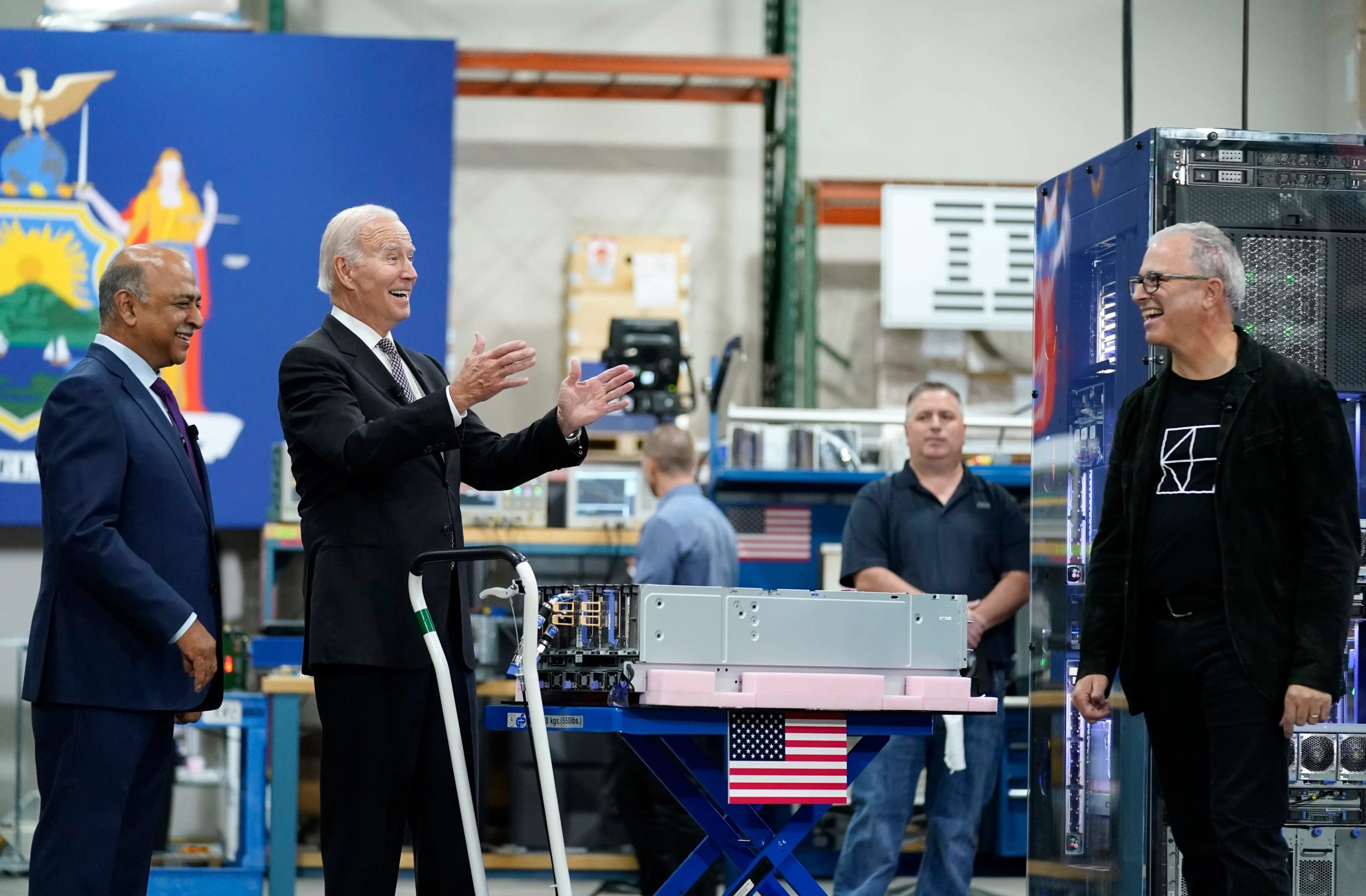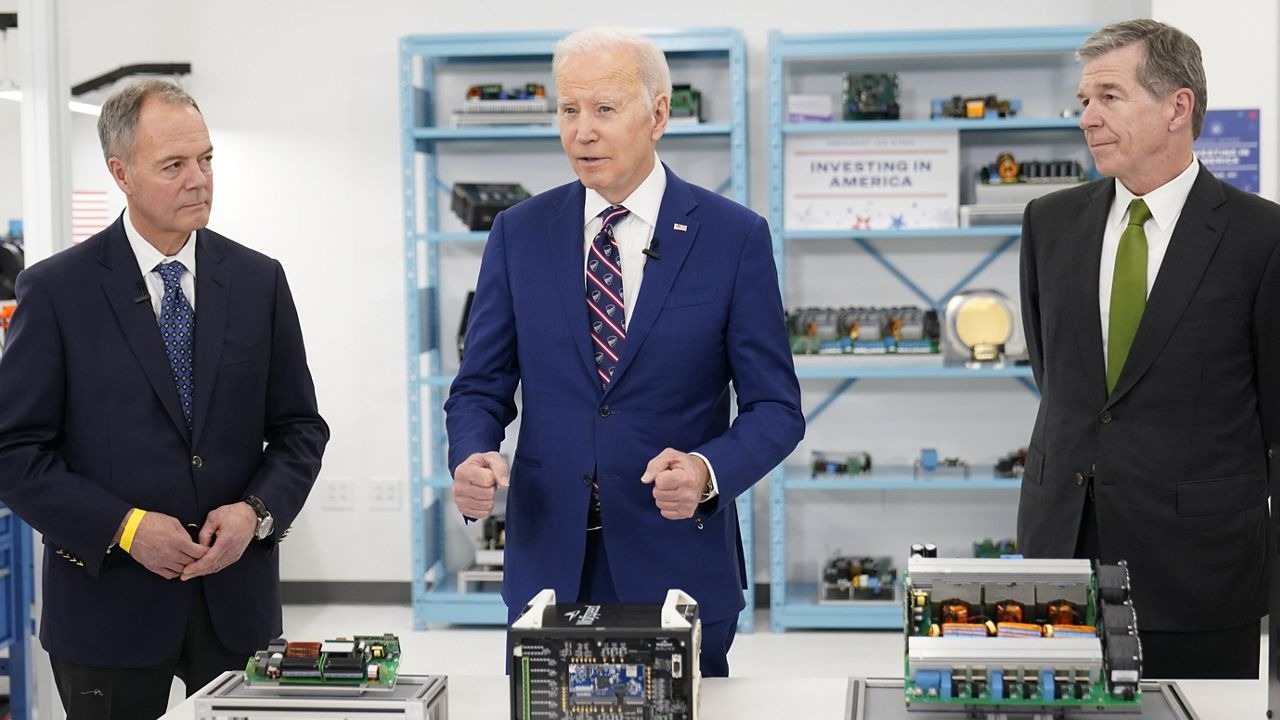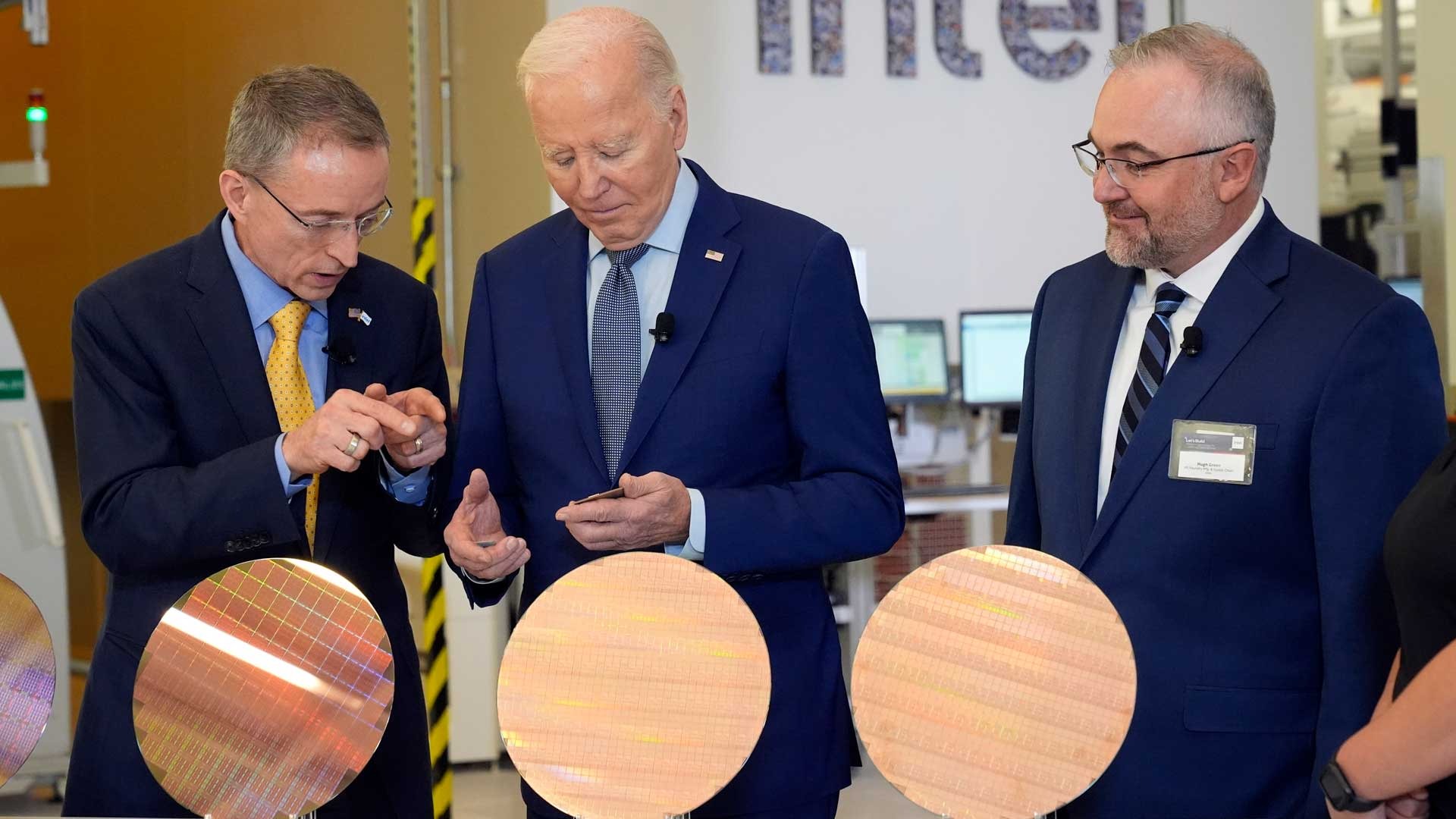President Biden’s announcement of an $8.5 billion federal grant to Intel for advanced computer chip manufacturing marks a significant milestone in American industrial policy, reminiscent of Dwight D. Eisenhower’s investment in the nation’s highway system.
However, instead of signaling a resurgence in America’s technological prowess, there are concerns that this could be the apex of the effort.
The passage of the CHIPS and Science Act two years ago was hailed as an initial step toward long-term investment in critical sectors, mirroring Taiwan’s success in chip manufacturing.

Biden’s Plan to Bolster Chip Manufacturing (Credits: South China Morning Post)
China has followed a similar strategy for nearly a decade, channeling funds into various technological domains, such as chips, batteries, quantum computing, and artificial intelligence.
While President Biden lauded Intel’s plant construction as a pivotal moment for American industry and national security, future initiatives are uncertain.
Despite the immediate benefits, including 10,000 manufacturing jobs across several states and 20,000 construction jobs, there’s apprehension within the administration about the sustainability of their strategy amidst political polarization.

Biden (Credits: Spectrum News)
Congress has chipped away at the billions of dollars allocated for research, training, and production, casting doubt on the longevity of such initiatives.
The fear is that without continuous support and funding, America’s efforts to regain its technological edge could falter in the face of global competition.
While the Intel grant represents a significant investment in American industry, there are concerns about the broader sustainability of the country’s technological resurgence amidst political and budgetary challenges.























